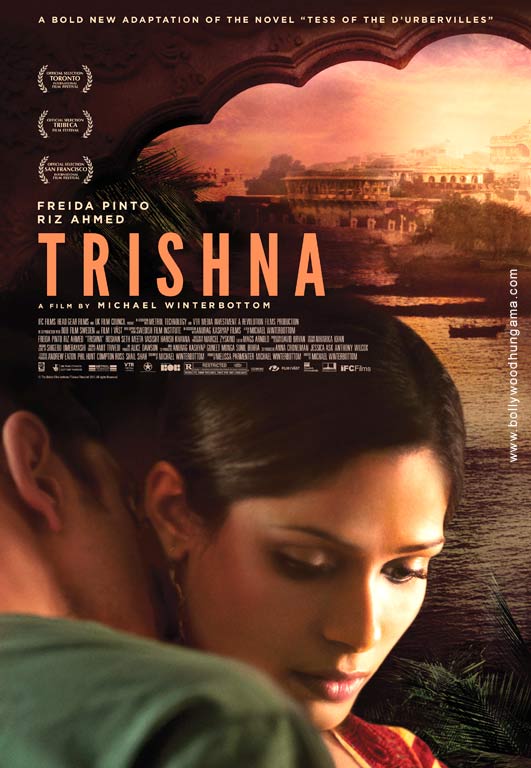


Trishna (Freida Pinto) lives a meager existence with her large family in a village in Rajasthan. It's tragic, but not unnecessarily so we understand the gravity of the situation, and we recognize that the conclusion is inescapable. "Trishna," a modernized retelling that shifts the setting to India, is very much like "Tess" in that it tells the story of an innocent young woman whose life is ultimately destroyed by love, societal values, unfortunate turns of events, and above all, male dominance. This would be Roman Polanski's "Tess," a romantic melodrama that, like the novel, was set in Victorian England. The next adaptation, however, was well preserved even before its American premiere in 1980. Michael Winterbottom's "Trishna" is the fourth theatrical adaptation of Thomas Hardy's 1891 novel "Tess of the d'Urbervilles." The first two adaptations, silent films released in 19 respectively, have since been declared lost. Reviewed by Chris_Pandolfi 8 / 10 A Victorian Tragedy with an Indian Twist Trishna's tragedy is that she is torn between the traditions of her family life and the dreams and ambitions that her education has given her.-Revolution Films But despite their feelings for each other, they cannot escape the conflicting pressures of a rural society which is changing rapidly through industrialisation, urbanisation and, above all, education. After an accident destroys her father's Jeep, Trishna goes to work for Jay, and they fall in love.

Set in contemporary Rajasthan, Trishna (Freida Pinto) meets a wealthy young British businessman Jay Singh (Riz Ahmed) who has come to India to work in his father's hotel business. Based on Thomas Hardy's classic novel Tess of the D'Urbervilles, 'Trishna' tells the story of one woman whose life is destroyed by a combination of love and circumstances.


 0 kommentar(er)
0 kommentar(er)
